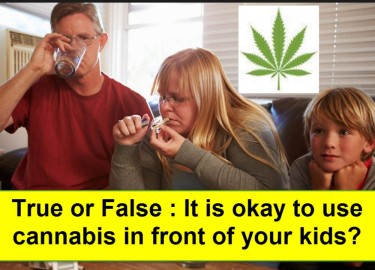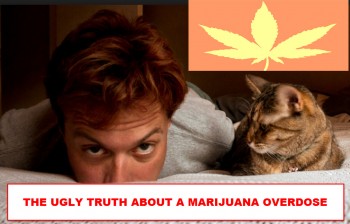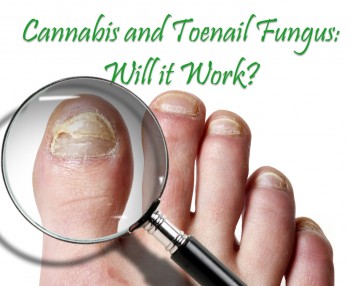
The House sponsor of legislation in Virginia aimed at safeguarding the parental rights of lawful cannabis consumers is denouncing Governor Glenn Youngkin's recent decision to veto the bill.
Had it been enacted, HB 833 would have barred the state from using marijuana as sole evidence of child abuse or neglect. Additionally, it would have mandated that drug testing in child custody and visitation cases exclude substances permitted for lawful adult use under the state's alcohol, cannabis, and drug laws.
Governor Youngkin's veto, issued last Friday, cited concerns that the proposed legislation sought to address a nonexistent problem and could potentially harm children.
The bill's sponsor, Del. Rae Cousins (D), responded by criticizing the governor's position, claiming that he supports needless family splits and ignores children's welfare.
Cousins underlined how these rules disproportionately affect Black and Brown families, who frequently face more severe consequences for using drugs lawfully and responsibly. She emphasized the harm that family separation does to communities and the well-being of children, and she contended that Governor Youngkin is essentially endorsing the unnecessary dissolution of families via the legal system by vetoing the law.
Legislative Journey and Continued Advocacy
The journey of this legislation to the governor's desk saw unanimous or near-unanimous approval in Senate votes, while the House exhibited more division. Although Democrats generally supported the bill, it also garnered some Republican votes.
Expressing deep disappointment, Cousins remarked, "Governor Youngkin’s decision to veto this bipartisan, commonsense bill that simply helps families stay together."
Now, the bill returns to the legislature, where a two-thirds majority in both houses is required to override Youngkin’s veto. A corresponding Senate version, SB 115, has passed the legislature this session but awaits transmission to the governor’s desk.
The proposal stipulates that a person’s "lawful possession or consumption" of state-legal substances should not be grounds to restrict custody or visitation unless other facts indicate that such possession or consumption is not in the child's best interest. An enactment clause would have mandated the state Board of Social Services to adjust its regulations, guidance documents, and other materials to align with the bill's provisions.
Cousins, in a statement from her office, emphasized that courts would still retain the full ability to evaluate the best interests of the child, including assessing the risk of physical or mental harm.
Advocates expressed their disappointment with Youngkin's veto decision but affirmed their commitment to persist in advocating for the policy change.
"Disappointed doesn’t even begin to capture the feeling after two years of pushing for this proposal," remarked Chelsea Higgs Wise, executive director of Marijuana Justice, to Marijuana Moment last week. She added, "We will return next year and every year until we succeed."
JM Pedini, development director of NORML and executive director of Virginia NORML, challenged Youngkin’s claim that the bill addresses a "non-existent problem."
"We have been inundated with calls and emails from parents who have lost custody or visitation rights solely because of their lawful use of medical cannabis," Pedini told Marijuana Moment. "This bill would have clarified to the courts that lawful and responsible cannabis use should not be grounds for denying custody or visitation. It is a necessary measure aimed at addressing real harm inflicted upon Virginia parents and children."
Broader Marijuana-Related Measures Await Action
The legislation is one among several marijuana-related measures awaiting action from Governor Youngkin during this legislative session. Other proposals include legalizing and regulating retail cannabis sales for adults, revising sentences for individuals incarcerated for past cannabis offences, and safeguarding public-sector workers from discrimination based on lawful medical marijuana use.
Due to procedural aspects of the legislative process, the governor has more time to consider the remaining proposals. However, concerns have arisen regarding the fate of the retail sales legislation, as a sponsor indicated last week that the bill's future could be uncertain following a souring of an unrelated deal with the governor.
Despite assertions from the governor's office that Youngkin was not supportive of the sales proposal, his press secretary referenced Youngkin's earlier statements this year indicating his lack of enthusiasm for advancing marijuana legalization.
In Virginia, adults are already permitted to use, possess, and cultivate cannabis in limited quantities, thanks to a proposal spearheaded by Democrats and approved by lawmakers in 2021. However, there is currently no legal avenue for adults to purchase cannabis, leading to the proliferation of illicit stores meeting consumer demand. Estimates suggest the unregulated cannabis market in Virginia is valued at approximately $3 billion.
Legislative Backlash and Advocates' Resolve: Push for Policy Change Despite Setback
Legislators and supporters are uniting to overturn Governor Youngkin's contentious veto of HB 833, which sought to shield parents who use marijuana from allegations of neglecting their children. The veto has spurred a contentious discussion about racial inequality, parental rights, and the effects of drug prohibitions on families, which has given proponents of change a fresh lease on life. The bill's sponsor, Del. Rae Cousins (D), expressed disapproval of the governor's decision and noted that it would unfairly impact Black and Brown families and endanger children. Opponents contend that Youngkin's veto disregards the larger repercussions for communities and instead uses the judicial system to enforce needless family separations.
The legislative journey of HB 833 underscored bipartisan support, with unanimous or near-unanimous approval in Senate votes. While Democrats generally backed the bill, it also garnered some Republican votes. Despite this, Governor Youngkin vetoed the bill, stating concerns over addressing a non-existent problem. Advocates, however, assert that the issue is real, citing instances where parents have lost custody or visitation rights solely due to lawful cannabis use. The proposed legislation sought to prevent such occurrences by ensuring that legal substance use is not grounds for restricting parental rights.
With the bill now returning to the legislature for a potential override, advocates remain resolute in their commitment to pushing for policy change. Chelsea Higgs Wise, executive director of Marijuana Justice, expressed disappointment over the veto but affirmed their determination to continue advocating for the bill's passage. Similarly, JM Pedini, development director of NORML and executive director of Virginia NORML, emphasized the necessity of clarifying that lawful cannabis use should not lead to adverse legal consequences for parents. Despite the setback, advocates are determined to press forward until their objectives are achieved, signaling a continued battle for marijuana policy reform in Virginia.
Bottom Line
Governor Youngkin's veto of HB 833 has catalysed a contentious dialogue surrounding parental rights, racial disparities, and the ramifications of drug legislation in Virginia. Despite facing setbacks, advocates are unwavering in their commitment to pushing for policy change, citing the real-world impact on families and communities. As the legislative battle continues, the outcome will not only shape the landscape of marijuana policy in Virginia but also have broader implications for social justice and child welfare in the state.







